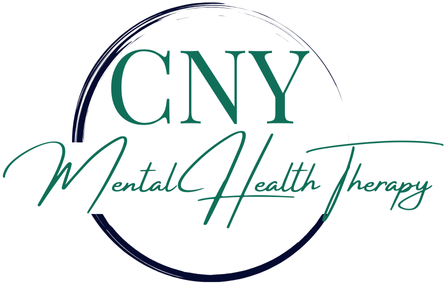
We all know sadness. It’s that familiar, heavy feeling that washes over you when you lose a loved one, experience a breakup, or even just have a really rough day. It’s a normal, valid, and healthy part of the human experience. We feel it, we process it, and eventually, the clouds lift.
But there’s another kind of heavy—one that doesn't lift, one that feels less like a feeling and more like a permanent, gray filter over the entire world; depression. It;s important to understand how depression is different from sadness.
Too often, when someone says they are struggling with depression, they are met with the well-meaning but minimizing advice to “cheer up” or “just look on the bright side.” This is like telling someone with a broken leg to just walk it off.
Here is my perspective on the crucial differences between these two states:
1. The Trigger and the Target
Sadness is typically tied to a specific trigger.
When we feel sad, we can usually point to the reason: “I’m sad because I didn't get that job,” or “I’m sad because my pet is sick.” It's a proportionate response to a specific event or situation. The sadness is focused on that event. Sadness is also connected with grief. Grieving the loss of something that was once had like a relationship, an experience, or a change that has occurred that resulted in life being different than it was before.
Depression, on the other hand, often has no clear trigger or is vastly disproportionate to any event.
It's the feeling of overwhelming despair that persists even when things are objectively going well. It’s not about being sad about something; it’s about feeling nothing or feeling bad about everything. The target of the feeling is life itself, not a single event. Depression is also connected to self-loathing.
2. The Duration
Sadness is temporary.
It's a wave that crests and eventually recedes. You might cry, feel low for a few days, but you maintain your ability to engage with life. You can still laugh at a joke, enjoy a good meal, or look forward to an event.
Depression is persistent.
One of the defining symptoms of Major Depressive Disorder is that the low mood, or anhedonia (the inability to feel pleasure), must be present for most of the day, nearly every day, for at least two weeks. This isn't a bad weekend; it’s a sustained, crushing weight that doesn't let up.
3. Impact on Daily Functioning
This is the most critical difference.
Sadness doesn't usually paralyze your life.
You might feel less motivated, but you can still go to work, take care of your responsibilities, eat meals, and shower. Your functioning is slightly impaired, but not destroyed.
Depression dramatically interferes with life.
It impacts your ability to function. It can manifest as:
-
Physical Symptoms: Insomnia or excessive sleeping, chronic fatigue, changes in appetite and weight.
-
Cognitive Symptoms: Difficulty concentrating, making decisions, or remembering things (often called "brain fog").
-
Behavioral Symptoms: The inability to get out of bed, neglecting basic hygiene, withdrawing from friends and hobbies.
It can feel like it takes a lot of effort to complete simple tasks like making a cup of tea or sending an email. It’s a struggle against an invisible force that is draining all of your energy.
4. The Loss of Self
When you are sad, you still feel like you. You are a person who is currently sad.
With depression, that sense of self can feel lost or muted. It can be a feeling of profound emptiness, a belief that you are fundamentally flawed, worthless, or a burden. It can even involve a physical feeling of numbness—an inability to access any strong emotion, including love or joy.
The Takeaway: Compassion and Action
If you are sad, take time to grieve, call a friend, and know that this too shall pass.
If you or someone you know is experiencing symptoms that look more like persistent, function-impairing depression—if the feeling has lasted for weeks and is making it impossible to live a normal life—please recognize that this is more than "just sadness." This requires professional care, not just positive thinking.
The first steps are always the hardest, but they are essential:
-
Talk to a doctor or a mental health professional. Depression is treatable through therapy, medication, or a combination of both.
-
Be patient and kind to yourself. You wouldn't blame yourself for having the flu, so don't blame yourself for having depression.
Let’s commit to using language that respects the gravity of depression. It is not a character flaw or a bad mood; it does not discrimmate based on race, socioeconomic status, or age. It deserves attention, compassion, and effective treatment.

Jessica Butler
Contact Me




